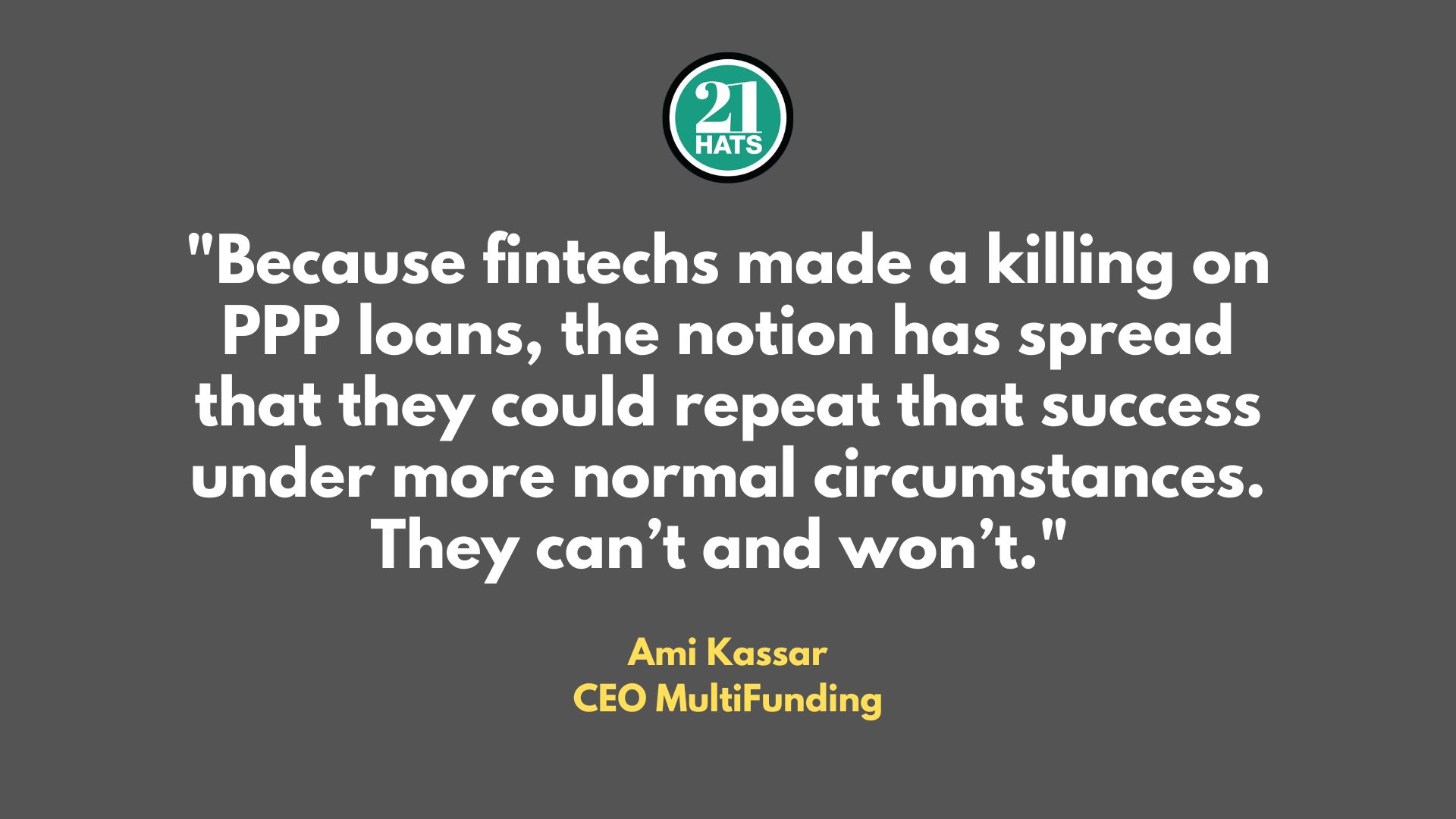Why Opening SBA Loans to Fintech Lenders Is a Mistake

The goal is to get more capital to underserved businesses, but the results could be disastrous.
By Ami Kassar
The devil, as they say, is in the details.
That adage dates back to the 19th century, long before the existence of Covid-19, or PPP loans, or even the Small Business Administration. Most importantly, it was coined long before the advent of fintechs, the popular internet-based alternative lenders that grew exponentially in prominence when the SBA triggered its federally backed Paycheck Protection Program early in the pandemic.
That has inspired a well-intended—but, in my opinion ill-considered—rethink by the Biden administration to open traditional SBA loans to fintechs. A list of policy initiatives announced by Vice President Kamala Harris in early October included a proposed rule change on SBA loans that could open the door to increasing the number of licenses issued to lenders—something that has not happened in 40 years. There is good reason to be cautious about handing out licenses. The federal government backs up to 85 percent of the roughly $35 billion lent through the SBA’s 7(a) program annually. That requires a litany of stringent rules and controls, or so it was thought, and the number of licenses has been stuck at just 14 since 1982.
Because small businesses and micro businesses desperately needed cash when the pandemic hit, the SBA shaved its requirements for PPP loans to a couple dozen, paving the way for fintechs to originate them. Some of that easing led to acts of fraud—borrowing for boats and planes and businesses that really did not exist—but the fintechs were also quite helpful in getting money out to a lot of those smaller businesses that were unable to get the attention of the big banks they were dealing with or unable to satisfy the regulations in place pre-Covid.
According to The Federal Reserve Bank of New York, Black-owned firms applied to fintech lenders more than twice as often as white, Asian, and Hispanic-owned firms. Fintech lenders, a recent analysis by the Federal Reserve Bank of New York found, are more likely to service loans with businesses that do not have an established relationship with a traditional bank.
The intent is clear: to issue more loans to underserved businesses and entrepreneurs.
The problem: those pesky details.
Because fintechs made a killing on PPP loans, the notion has spread that they could repeat that success under more normal circumstances. They can’t and won’t. And in the end, I believe opening the SBA door to fintechs will spell disaster for the borrowers they purport to help. You see, regular SBA lending is nothing like PPP lending. In regular SBA lending, there are literally thousands of rules and regulations that have to be followed and considered and that ultimately protect the borrower and the taxpayers.
All those rules and nuances are the exact opposite of the speed and efficiency that fintechs like to leverage. By their very nature, fintechs are not equipped to address the stringent rules of traditional SBA loans. The fintechs’ success and profitability during the pandemic was the offshoot of expediency. The government needed to get cash out the door and—to some extent—was willing to live with the consequences. There have been more than 1,500 cases of fraud, where the government and taxpayers may or may not be able to get their money back.
The SBA, then, is likely face an unseemly choice: Keep the regulatory requirements for SBA loans intact or relax them to ease the access to capital through fintechs. I don’t recommend the latter because these loans are guaranteed by the U.S. government and the results are not going to be pretty.
Again, though, the intentions are good. I think a better idea for that money would be to spend it on a program that provides tax and accounting help to underserved business owners, so they can build their businesses in a way that will satisfy the more stringent regulations required to get traditional SBA loans.
Would that take time? Sure. But so does unraveling the mess of bad loan policy, as the ever-mounting PPP fraud cases attest.
Ami Kassar is CEO of MultiFunding